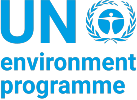Interview Series #3
Fukuda Norihiko, Mayor of Kawasaki:
“The ultimate goal is to develop a system that enables all plastic products used by Kawasaki’s citizens to be recycled in the city.”
ーーKawasaki is a city focused on pollution control. Could you tell us how you developed into a leading sustainable city?
Kawasaki will be celebrating its 50th anniversary of becoming an ordinance-designated city this year. The slogan at the time was “Blue Sky, White Clouds.” The intention was to somehow restore a blue sky and white clouds to Kawasaki, which was then known as a pollution-ridden city, but it’s shocking to think that this was the election slogan back then. These promising words led the city’s people to elect a new government, after which environmental measures such as anti-pollution ordinances were established in earnest. Kawasaki used to be a heavy industry-centered city that was prepared to sacrifice the environment in order to drive the Japanese economy. However, the election marked the shift to a city focused on both environmental conservation and economic growth.
Our efforts have not involved measures like kicking out certain factories from the city. Rather, we have worked on gradually developing an administrative framework, requiring companies to adhere to stringent standards/rules while also gaining an understanding of the public. In that sense, you could say that the local government, citizens, and companies have all worked together to build our environment-oriented city.

ーーHow is Kawasaki addressing the reduction of plastic waste?
We launched the Kawasaki Plastic Recycling Project this year. This project aims to work with citizens to implement closed-loop recycling that involves turning used plastic such as bottles into resources before creating the same products from those resources. The ultimate goal is to develop a system that enables all plastic products used by Kawasaki’s citizens to be recycled in the city. We are working on creating a cycle where plastic bottles used by citizens are collected at business establishments such as Seven Eleven and Ito-Yokado, the bottles are taken to recycling facilities in Kawasaki for processing, and the new bottles are delivered to beverage manufacturers.
Kawasaki is currently the only city in Japan that can carry out both chemical recycling (chemically decomposing plastic bottles and reusing them as raw materials) and material recycling (reusing plastic bottles as raw materials for plastic products). Kawasaki has the processing capability to recycle seven times the number of plastic bottles and 14 times the amount of regular plastic containers and wrappers used by its citizens. This means we are capable of processing plastic not just from Kawasaki but also from the whole metropolitan area.
We, Kawasaki City, are determined to develop the plastic recycling system together with beverage manufacturers, collection businesses, and citizens. And we intend to get as many partner business operators as possible. Having said that, actually eliminating plastic waste is no easy task. Therefore, the key will be to reduce the use of virgin plastic and recycle as much as possible.
These initiatives have only just begun, so I hope we can work with UNEP to spread this virtuous cycle.
ーーBased on the example of Kawasaki, do you have any advice regarding achieving a circular economy-based society in developing countries?
A comprehensive approach including not only technological transfer but also appropriate waste management and air and water-related measures is required. In this respect, intangible aspects such as consensus building and management know-how are important too. But such initiatives will not take root or spread globally unless they are adapted to specific national and cultural contexts. I believe the relationships we have developed thanks to UNEP have given us opportunities to assist and collaborate with specific countries in this area. For example, we have learned a lot from our joint project with JICA in Bandung, Indonesia.
Kawasaki had a very difficult time dealing with waste as well as air pollution. In 1990, 32 years ago, the city issued a declaration of waste state of emergency, stating that no more garbage could be handled. After that, the city worked with citizens to reduce waste through promoting recycling and implementing strict garbage sorting rules. Thanks to these efforts, Kawasaki became the city with the least garbage produced per capita among Japan’s large cities for three consecutive years from 2017.
This achievement was the product of consistent effort and would have been impossible without the help of other stakeholders. It was made possible thanks to local waste reduction advisors who provided valuable advice about strict garbage separation, not to mention the understanding and cooperation of our citizens. Building on such initiatives, we want to offer people in developing countries with ideas that could be applied to their specific cultural contexts.

ーーWe believe that waste management, circular economy, and carbon neutral are all connected. Based on the experience that Kawasaki has accumulated over the last several decades, do you have any ideas for collaborating with UNEP in the next 30 years?
In terms from learning from the past and achieving progress, many visitors to Kawasaki from developing countries are very surprised by how much Tama River has changed. About fifty years ago, around the time I was born, Tama River was so polluted that detergent bubbles used to float out from the water. Most people are struck by disbelief when they hear that sweetfish have returned to the river today. In an effort to beautify Tama River, almost 20,000 citizens get together to collect trash from the riverbed. This is a great example of culture created through action.
As the issues faced by countries and regions around the world are critical in nature, it’s only natural that an urgent response is required. However, it is important to help people understand the issue from a personal perspective rather than simply coercing them to take action. That’s why nudge-based initiatives—nudging is a policy method that involves utilizing behavioral science knowledge to help people make better decisions for themselves on their own accord—will be increasingly important in the future.
When it comes to environmental issues, people tend to leave it to others. Climate change is an enormous challenge; whether someone decides not to drive their car today will not make a meaningful difference. This makes it hard for individuals to conceptualize the issue from a personal perspective. In this regard, the damage caused by the typhoon that struck three years ago had a greater impact than our daily awareness-raising efforts. It had a greater impact than any fine-sounding words. The raging Tama River made residents painfully aware of the threat posed by climate change—that their town may someday be engulfed by water. Damage due to typhoons and flooding has been occurring every year; the abnormal is becoming the new normal. It is not words but the actual climate crisis that has raised a sense of alarm among citizens.
Carbon neutral initiatives are being implemented in various cities around the world. I myself have been inspired by the efforts of the mayor of a certain city in the UK. The key takeaway I got from this example is that we can take action on a municipal rather than a state level. In that sense, I believe that UNEP and other non-state actors play an important role and that we need to cooperate with them. In terms of technical expertise and its practical application, it is essential to have a system that enables us to provide knowhow, technology, and products to other cities, especially in high-demand areas such as developing countries, in an appropriate fashion. Therefore, we are eager to cooperate with UNEP and its activities.






